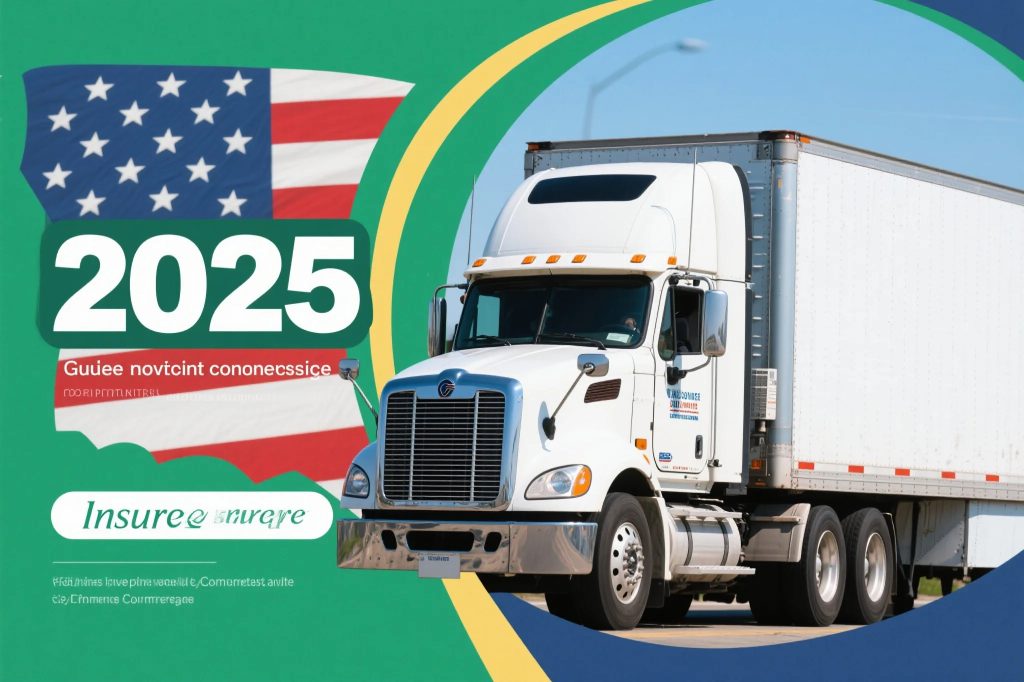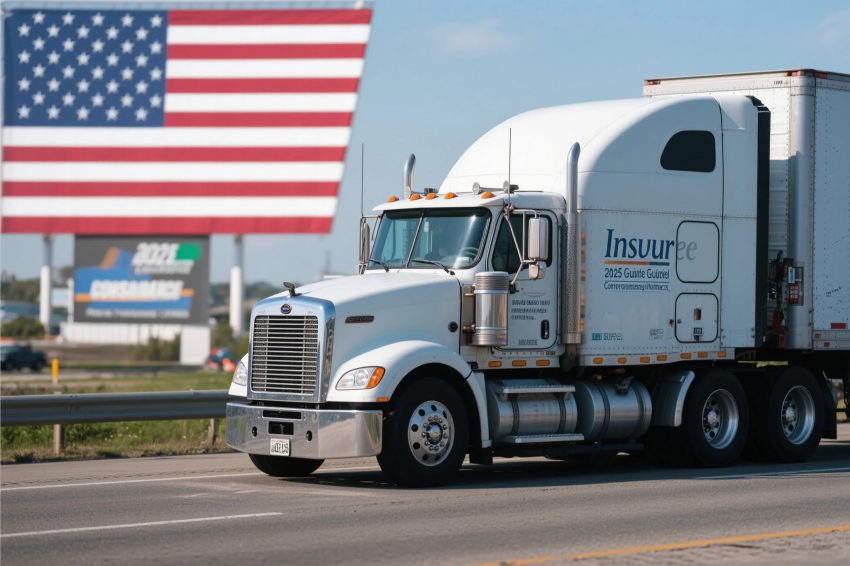The commercial trucking industry in the United States is the backbone of the nation’s supply chain, moving billions of tons of goods each year across highways, cities, and rural routes. As we enter 2025, the risks facing trucking companies and independent operators have grown more complex and costly, making trucking insurance an absolute necessity for anyone involved in cargo transport. From regulatory changes and evolving liability standards to the increasing value of transported goods and the rise of cyber threats, the landscape of commercial transport is fraught with challenges that can threaten the financial stability of even the most experienced operators. Trucking insurance is no longer just about meeting legal requirements—it’s about building a resilient business that can withstand accidents, lawsuits, theft, and catastrophic losses. The right insurance coverage provides peace of mind, allowing fleet owners and drivers to focus on safe, efficient delivery while knowing that their assets, employees, and reputations are protected. In this comprehensive 2025 guide, we’ll explore the must-have policies, emerging trends, and best practices for securing robust trucking insurance in the U.S., ensuring your business is prepared for whatever the road ahead may bring.
Cargo Transportation Insurance: Safeguarding Goods in Transit
Every load that hits the road represents a significant investment for shippers, carriers, and brokers alike. cargo transportation insurance is designed to protect against the financial fallout of lost, damaged, or stolen goods during transit. In 2025, the value and diversity of cargo have never been higher, with everything from electronics and pharmaceuticals to perishable foods and hazardous materials moving across the country. The risks are equally varied—accidents, weather events, theft, and even cyberattacks targeting shipment data can all result in substantial losses. The best cargo transportation insurance policies offer broad coverage for a wide range of perils, flexible limits to accommodate high-value shipments, and responsive claims service to minimize business disruption. For trucking companies, investing in comprehensive cargo insurance is not just about compliance—it’s a competitive advantage that can help secure contracts, build trust with clients, and protect profit margins. By understanding the nuances of cargo coverage, including exclusions, deductibles, and claims procedures, operators can ensure that their goods—and their bottom line—are protected every mile of the journey.
High-Risk Workers Compensation: Protecting Your Most Valuable Asset
Truck drivers and logistics personnel are the lifeblood of the commercial transport industry, but their work is fraught with hazards. high-risk workers compensation insurance is essential for covering medical expenses, lost wages, and rehabilitation costs in the event of workplace injuries or illnesses. In 2025, the trucking industry faces heightened scrutiny from regulators and insurers alike, with a focus on driver safety, fatigue management, and compliance with evolving health standards. The best high-risk workers compensation policies are tailored to the unique exposures of trucking operations, offering proactive risk management resources, return-to-work programs, and support for both employers and employees. By prioritizing robust workers compensation coverage, trucking companies can reduce the financial impact of accidents, improve employee morale, and demonstrate a commitment to safety that resonates with clients and regulators. In an industry where skilled drivers are in high demand and the cost of workplace injuries can be staggering, high-risk workers compensation is an investment in both people and profitability.
Hazardous Material Insurance: Managing Extreme Risks on the Road
Transporting hazardous materials is one of the most challenging and regulated aspects of the trucking industry. hazardous material insurance provides specialized coverage for the unique risks associated with hauling chemicals, fuels, explosives, and other dangerous goods. In 2025, stricter environmental regulations, increased public scrutiny, and the potential for catastrophic accidents make hazardous material insurance more important than ever. The best policies offer comprehensive protection for cleanup costs, third-party liabilities, environmental damage, and regulatory fines. They also provide access to crisis management resources and technical expertise to help companies respond effectively to incidents. For trucking operators, investing in hazardous material insurance is not just about legal compliance—it’s about protecting communities, the environment, and the long-term viability of the business. By working with insurers who understand the complexities of hazardous transport, companies can ensure that they are prepared for the unexpected and positioned for success in a high-stakes sector.

Risk Assessment Insurance: Building a Culture of Safety and Resilience
Effective risk management is the foundation of a successful trucking operation. risk assessment insurance is an emerging solution that helps companies identify, evaluate, and mitigate the full spectrum of risks they face on the road and in the office. In 2025, insurers are leveraging advanced analytics, telematics, and real-time data to offer customized risk assessment services that go beyond traditional underwriting. These programs help trucking companies pinpoint vulnerabilities, implement targeted safety measures, and reduce the likelihood of costly claims. The best risk assessment insurance policies reward proactive risk management with lower premiums, enhanced coverage options, and access to expert guidance. By embracing a culture of safety and continuous improvement, trucking businesses can not only protect their assets and employees but also enhance their reputation and competitiveness in a crowded market. In an era of rising costs and increasing complexity, risk assessment insurance is a strategic investment in the future of your business.
The Future of Trucking Insurance: Trends and Best Practices for 2025
As the commercial transport industry evolves, so too does the landscape of trucking insurance. In 2025, companies must stay ahead of emerging risks, regulatory changes, and technological advancements to ensure that their insurance coverage remains effective and relevant. The integration of digital tools, such as telematics, predictive analytics, and automated claims processing, is transforming the way companies assess and manage risk. Insurers are responding by offering more flexible, customizable policies that address the unique needs of modern trucking operations. Best practices for 2025 include conducting regular risk assessments, maintaining open communication with insurance providers, and staying informed about changes in regulations and industry standards. Companies should also prioritize ongoing training and education for their teams, ensuring that everyone is aware of the latest safety protocols and risk management techniques. By adopting a proactive approach to insurance and risk management, trucking businesses can position themselves for long-term success in a rapidly changing industry. The future of trucking insurance is one of innovation, adaptability, and resilience, and those who embrace these principles will be best equipped to thrive in the years to come.
